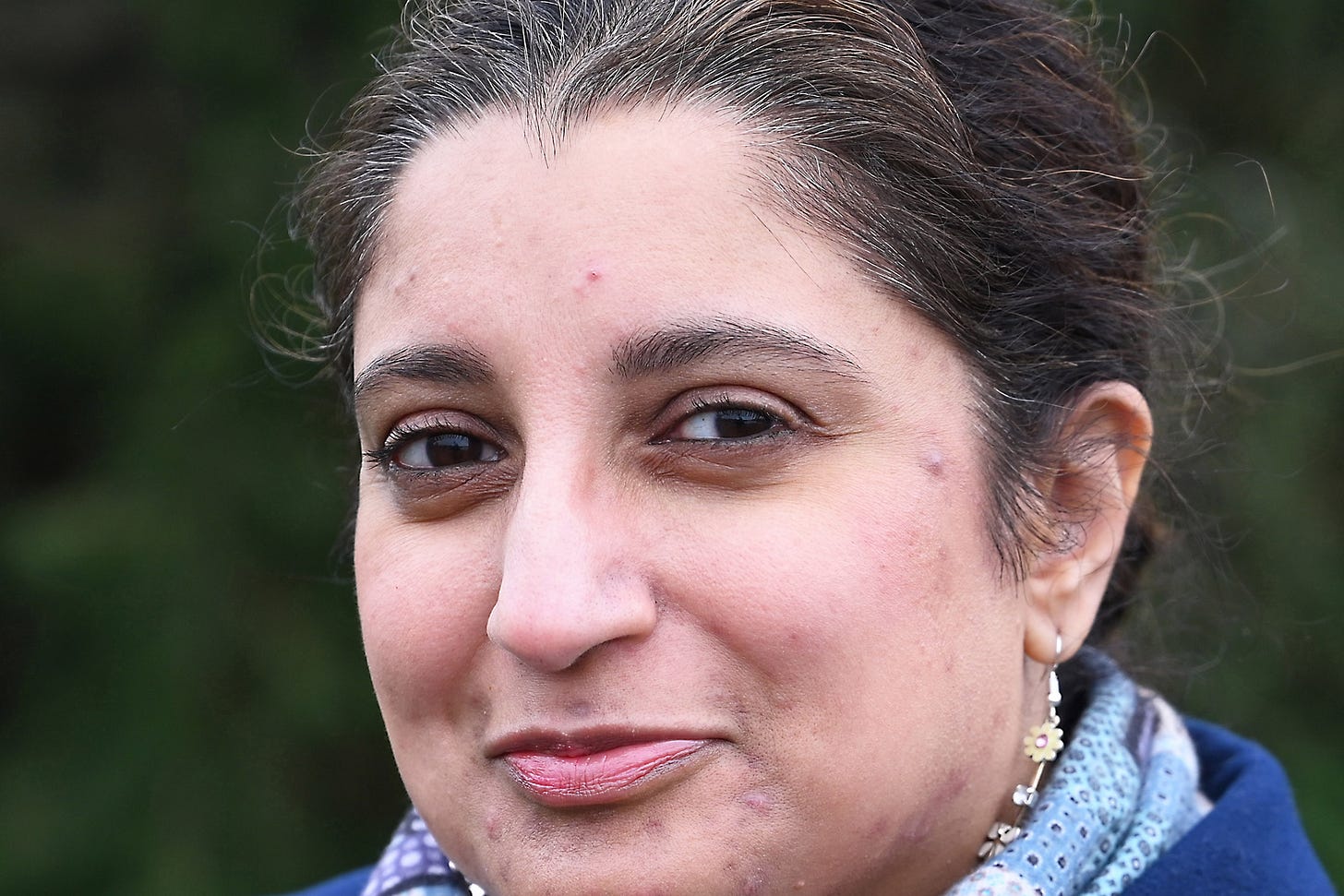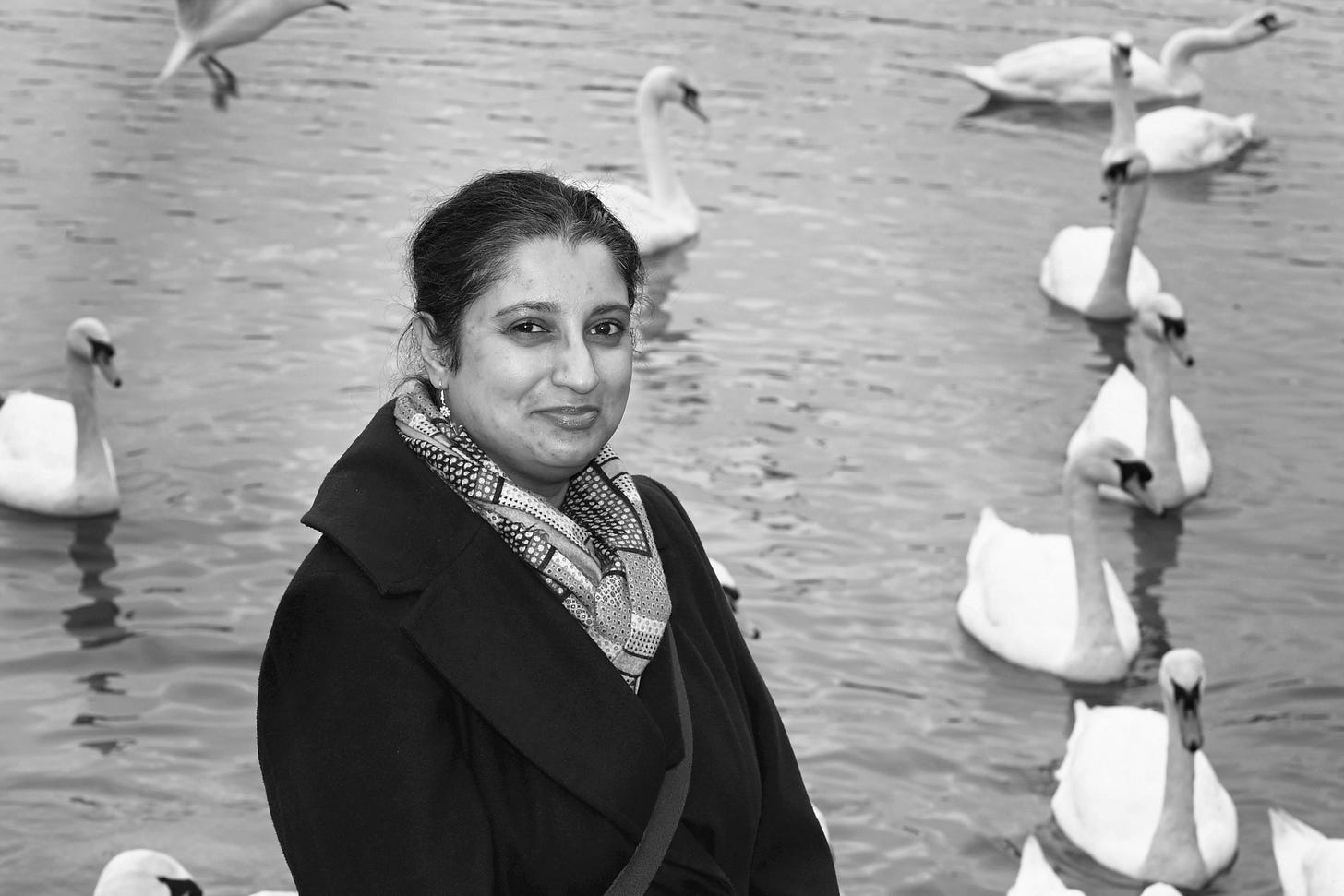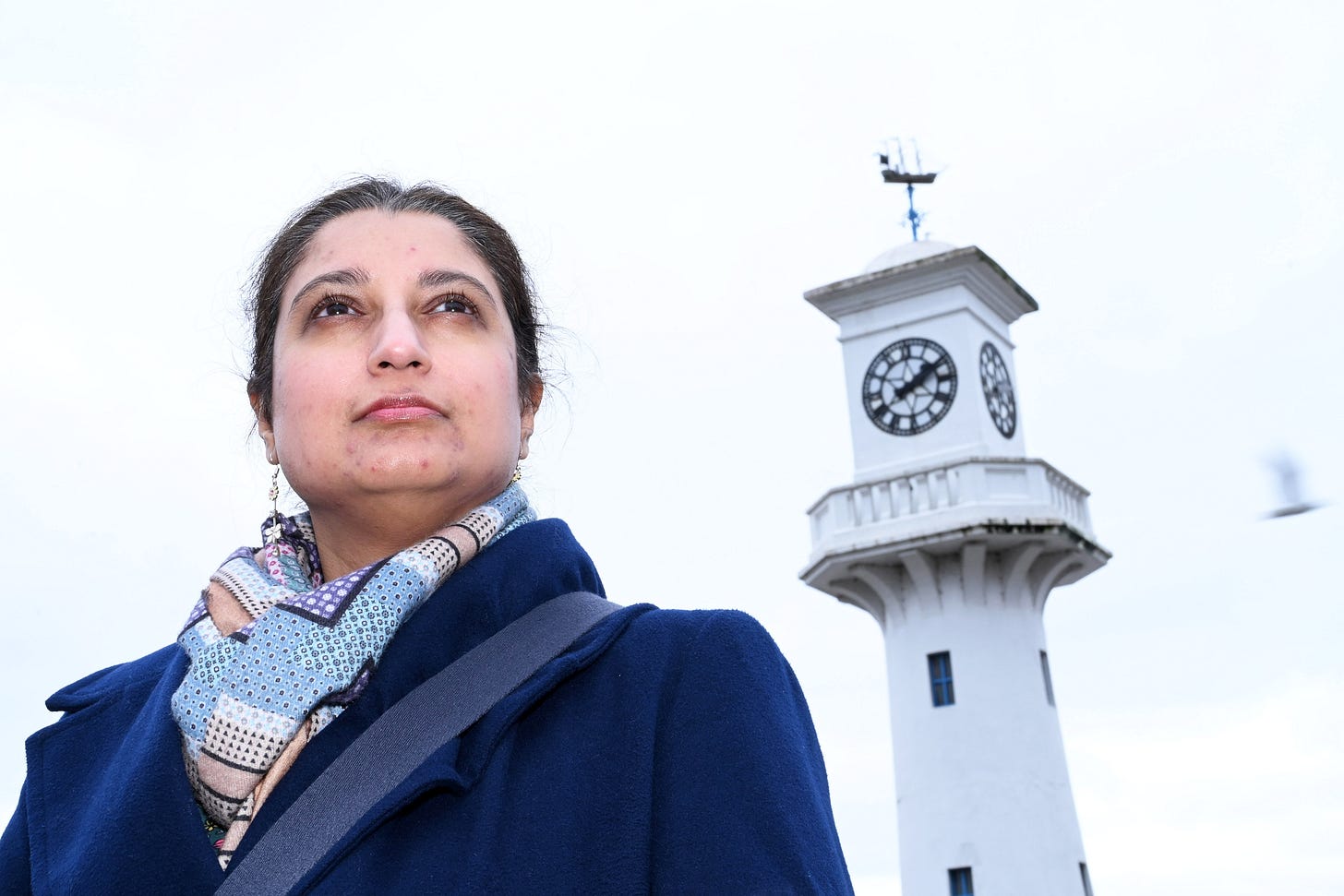'Your Face Doesn’t Fit': Being Welsh Asian
Irram Irshad recounts a life of facing up to racists and racism in south Wales
‘Your face doesn’t fit.’ I knew that people had thought that about me and people like me – through certain looks and passive aggressive comments – but that was the most direct anyone had ever been before all the faceless keyboard warriors on unsocial media.
When I was about seven years old, I was speaking in Punjabi in class with two other Muslim girls. This was the language of our parents and grandparents, and we spoke it at home. Our teacher angrily told us to only speak in English in class. I suddenly felt I had done something very wrong, something shameful. I didn’t realise it at the time, but it was our version of the ‘Welsh Not’.
On a sunny summer’s day, aged ten, I was leaving school, and a bunch of white boys from my class threw a bucket of water over me to ‘get the brown shit off’. I ran the two blocks home and cried to my mother, expecting her to say that she would speak to the headmistress the next day. She just sadly shook her head and said: ‘This is their country – those attitudes will die out when the old people who teach them die.’
That didn’t make sense to me because I was Cardiff born and bred – it was my country too. That was 1989, it’s now 2023 and those old people my mother spoke of are dead – yet their hateful attitudes still live on. In fact they have returned with a vengeance since the Brexit referendum. With the anonymity that technology brings, the Pandora’s box of racism is fully open and cannot be shut.
High School in the nineties wasn’t any better. ‘Your English is very good,’ a teacher told me. Why wouldn’t it be good? I have never lived anywhere other than Cardiff.
Things settled down over the following years. I was the top student in my year group for GCSEs; the teachers liked me; I had a small group of good friends. Then it was on to Cardiff University in 1997, the year Tony Blair and New Labour had a landslide victory in the General Election. We had Oasis and Blur, hope, optimism and a brighter future beckoning. Okay, there was the mass hysteria around Princess Diana’s death, but otherwise all was good. There were no problems at university, where I was studying Pharmacy and there were many people from my background. We all got on well within a great big melting pot of gender, colour, culture and sexuality.
Then it began to rear its ugly head again. In the nineties and noughties, my family owned a chain of ladies clothing stores in South Wales. I worked as a Saturday girl in our branches on Albany Road and Queen Street in Cardiff during my student years. I remember an elderly white ‘gentleman’ coming into the Albany Road branch, approaching the till wanting to know who owned the business. I replied that it was my grandfather’s. ‘Oh, that’s unusual, your lot usually run newsagents,’ he said. With that, he just simply walked out of the shop, leaving me open-mouthed.
Then 9/11 happened and overnight life changed for billions of Muslims around the world. Suddenly we were all collectively the ‘enemy’ – we were all terrorists. And the racists are so clever that they call Hindus and all other brown people terrorists and ‘Pakis’ too.
Around this time, I was locuming one Saturday in an independent pharmacy in Penarth and a white middle-aged man requested an emergency supply of the sleeping tablet Temazepam because his surgery had not sent the prescription over the day before and they were closed on weekends. I explained it was a controlled drug and therefore, unlike most other medicines, it was illegal to make an emergency supply of it. He angrily told me it was my ‘duty’ to give him a supply. Again, I explained that it was a controlled drug and if I gave a supply without a prescription in my hand, it was a criminal offence which carried a prison sentence. His response? ‘Well, that’s where you lot all end up anyway.’ He threw in a ‘Paki bitch’ before flouncing out. I didn’t report him because I was upset and shaken and I didn’t think the owners would do anything about it. The Saturday girl had been in the storeroom at the time and therefore I didn’t have a witness.
As I was forced to simply put up with racism, maintaining an exterior of professionalism – having to smile at people who every day treated me as subhuman because I was brown – anger about all of the injustices I faced continued to grow and fester within me as I did not have an outlet for them. Even now there are people who refuse to believe I was born in Wales, the irony being that the people who do not accept me as Welsh can’t even speak a word of Welsh – Dw i’n falch o siarad Cymraeg. The Muslim East gave the West science, maths, arts and culture for over a thousand years but here was the West treating us as backwards cave dwellers.
Since the late noughties I have worked for two different NHS employers. I thought the NHS was a just employer, treating all staff equally – after all it wouldn’t exist without immigrants and the Windrush Generation that came here 75 years ago to build it and work within it. It certainly wouldn’t exist today without all its ethnic minority staff; there would have been hardly any GPs in the South Wales valleys from the 1950s onwards.
But how naïve I have been: there are very few safe spaces or mechanisms to report racism from colleagues and the general public. The first time I reported racism from colleagues, a sledgehammer was taken to my life, my wellbeing and my career. I’ve had my lived experience questioned, and then there’s the regular overlooking for promotions and giving jobs to less qualified white colleagues. There’s the lack of development opportunities for ethnic minority staff, whilst white colleagues are actively encouraged to progress. Then there’s the active exclusion from meetings and e-mails, preventing us from doing our jobs. Not only can us ethnic minority staff do the job, we’ve had to work ten times as hard to achieve the same goals as our white counterparts whilst having our hands tied at every turn.
I’m frequently told that racism in Wales is ‘not as bad as it is in England’. Wait, I hadn’t realised that it was a competition that Wales was losing! As a brown Welsh female, living in Wales and going over the border regularly for trips, let me reassure you that racism in Wales is indeed as bad as it is in England. Anyone thinking otherwise needs to stop living in the town of Denial.
When I look back at my life, I am honoured and privileged to have had the education and career I’ve had and worked so hard for, and to have the amazing friends and allies who enrich my life. I’m proud of Welsh history and culture, and immensely proud of the work I’ve done for over twenty years to look after Welsh people. I love the patients and colleagues who do not see my colour and treat me as an equal.
‘Your face doesn’t fit,’ was something I heard from a Pharmacist Manager within a leading chain of chemist stores. She had come to Penarth to tear strips off me because I had been honest with the Regional Manager about issues in that store during a refit. He had asked about any problems and I answered truthfully! She was sent by the Area Manager to put me back in my box because I had embarrassed him in front of the Regional Manager. It was during that meeting, by myself, with no colleagues to support me, that I was told I would never progress within that or any other organisation – because my ‘face didn’t fit and never would’.
I asked if that was because I was Asian. She said nothing. Silence speaks volumes though, doesn’t it?
I don’t know where that Manager is now, nor all the other racists and bullies I’ve had to deal with in my 44 years of life and counting, and nor do I care.
But I know where I am. I’m still here, being an awesome Welsh woman, and an all-round decent human being. I will continue to highlight inequality and keep fighting the good fight. In recent years, I have been reminded that there are still decent people out there who share my values and see me as one of them – Welsh. My face does fit in Wales – it’s the faces of the racists that don’t.
Irram returned to her first love of writing after doing a 'proper job' as instructed by her family for over 20 years. She is a columnist for Lingo360, a regular contributor of stories to children's magazine Cip, and is currently editing her first poetry and short story collections for publication.





